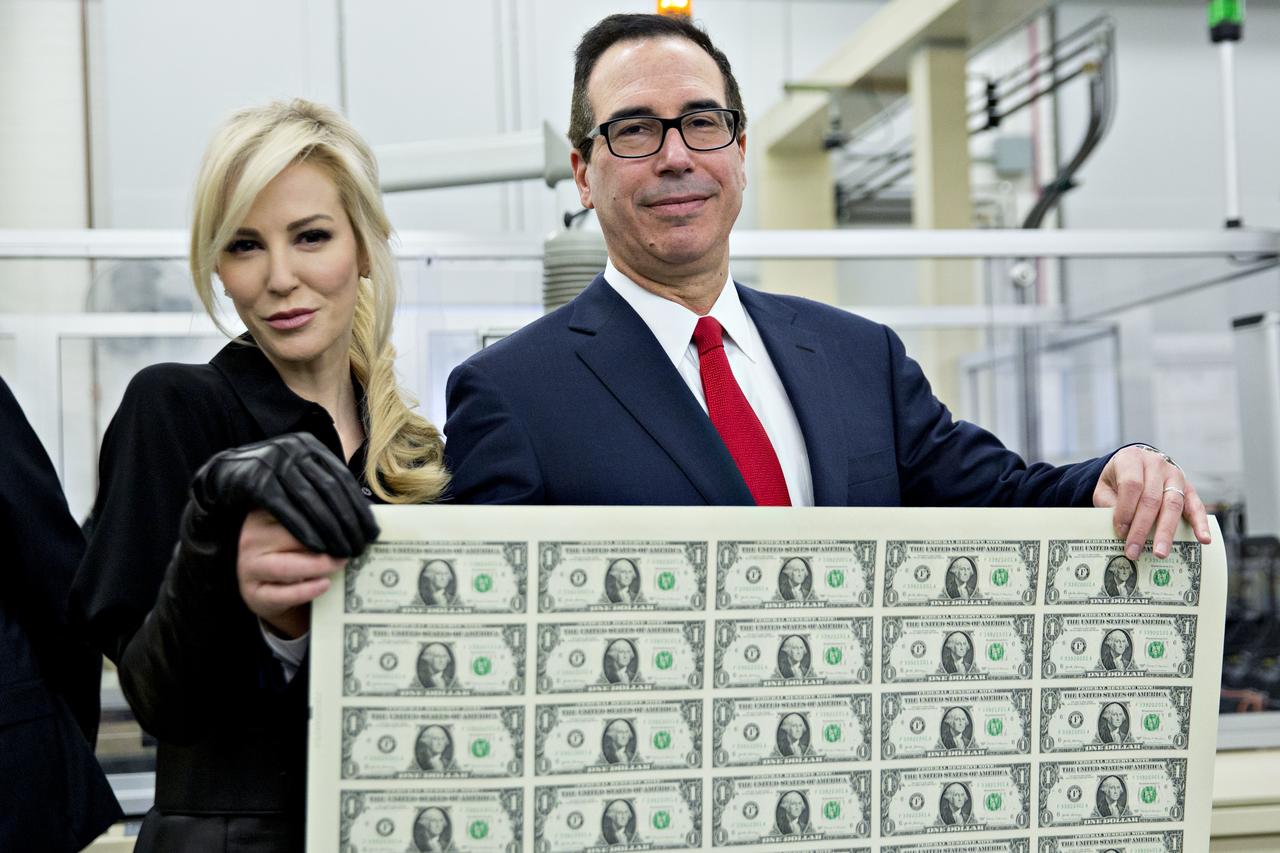Trump Admin To Name Most Recipients Of Bailout Loans
Tyler Durden
Fri, 06/19/2020 – 22:23
When the government said it would give out thousands of dollars in bailout loans grants under the Paycheck Protection Program, every eligible business – which was most small and medium businesses (that had no access to capital markets) with up to 500 employees, signed up. And why not: it was free money from a government that had launched helicopter money, and was seeking to ram the newly created money into the economy. There was no downside – the grants would be forgiven if used to pay wages or rent, and – at least according to widespread speculation – the loans would remain a secret. Which is why it was so surprising when it emerged that some “asset managers” such as Ritholtz Asset Management, led by Josh Brown and Barry Ritholtz, had also accepted bailout grants to stay in business. In retrospect, Ritholtz is the author of Bailout Nation so it probably should not have been a surprise.
What should have been a surprise is that an asset manager – i.e., a professional collecting generous fees to predict the future and entrusted with billions in capital not only failed to do that, but himself needed a bailout. It just goes to show how important it is to pick very calm and patient clients.
Of course, we can’t blame them: like most other recipients, Ritholtz probably expected that his name would never see the light of day, even though technically he used taxpayer money to prop up his company. And since it is taxpayer money, everyone has a right to know how it would be used.
Only in the case of just over half a trillion dollars in PPP grants that wasn’t the case, because for nearly 3 months after the PPP program was launched, Treasury Secretary Steven Mnuchin persisted in keeping the names of all recipients secret, much to the growing anger of those who effectively funded the loans.
That all changed late on Friday, when Bloomberg reported that the Trump administration said it would disclose details about companies that received loans of $150,000 or more from a coronavirus relief program for small businesses, following a backlash against its earlier refusal to release data about which firms got billions of dollars in government aid. Eleven news organizations had sued to make details about PPP loan recipients public.
Which is bad news for all those “financial advisors” like Ritholtz who will soon be revealed as getting paid to “predict” the future, yet not having the sense to even budget for a short-term crisis, let along have hedges in place for a downside scenario. As for the rest, it’s unclear how willing most small businesses would have been had they known that the very act of requesting a bailout would open them up to eventual public shaming.
The company names, addresses, demographic data and other information will be disclosed in five ranges starting with $150,000 to $350,000 and going up to between $5 million and $10 million, the Treasury Department and Small Business Administration said in a joint statement.
For loans below $150,000, only totals will be released aggregated by zip code, by industry, by business type, and by various demographic categories, the agencies said. The loans above $150,000 account for almost 75% of the total loan dollars approved, they said. It wasn not clear when the data would be released.
According to the latest SBA data, loans had been approved for almost 4.7 million small businesses totaling $514.5 billion. As of June 12, there were 3.9 million loans of less than $150,000 totaling $136.7 billion and almost 650,000 larger loans worth $375.6 billion.
* * *
Lawmakers had been demanding the disclosure of details about Paycheck Protection Program loans after Treasury Secretary Steven Mnuchin said at a Senate committee hearing on June 10 that the names of companies that received forgivable loans and the amounts were proprietary or confidential – even though as Bloomberg notes, the administration had previously said the details would be disclosed, and the PPP application says such data will “automatically” be released.
Officials had expressed concerns about releasing the details because a company’s payroll is used to determine the loan amount, and some independent contractors and small businesses use their home addresses that would be disclosed.
“I am pleased that we have been able to reach a bipartisan agreement on disclosure which will strike the appropriate balance of providing public transparency, while protecting the payroll and personal income information of small businesses, sole proprietors, and independent contractors,” Mnuchin said in a statement.
Critics said the public has a right to know how taxpayer dollars were used and that more detail was needed to know whether PPP was serving businesses that need help.
“The administration’s decision to hide basic PPP loan data is a disturbing sign of its lack of concern for who gets this funding, how much they receive or why,” House Speaker Nancy Pelosi said in a June 12 statement. “The administration must immediately reverse this decision and uphold its obligation to release this data.”
Republican Senator Marco Rubio of Florida, chairman of the Small Business & Entrepreneurship Committee, said the public deserves to know how effective the PPP has been, but that there are legitimate concerns about disclosing information about small firms. “Today’s announcement strikes a balance between those concerns and the need for transparency,” Rubio said in a statement.
Lawmakers have also called on Treasury and the SBA to provide details about its coronavirus relief loans to the Government Accountability Office, which is preparing a report about how relief dollars were spent.
![]()
Zero Hedge’s mission is to widen the scope of financial, economic and political information available to the professional investing public, to skeptically examine and, where necessary, attack the flaccid institution that financial journalism has become, to liberate oppressed knowledge, to provide analysis uninhibited by political constraint and to facilitate information’s unending quest for freedom. Visit https://www.zerohedge.com

